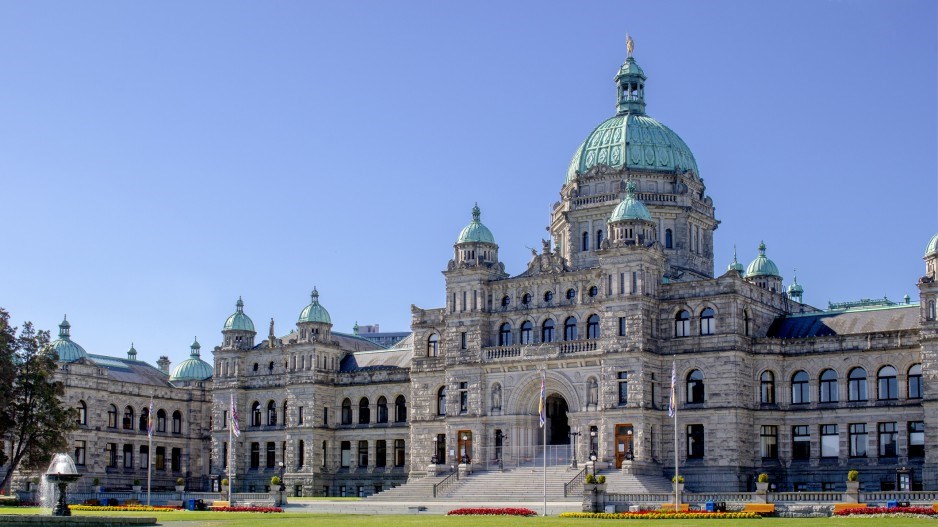The committee overseeing operations at B.C.’s Legislative Assembly expects to spend $300,000 to reconfigure the chamber and add desks for six new members in time for the next election.
A report to the Legislative Assembly Management Committee (LAMC) meeting on Thursday (July 20) rejected bench-style seating. It said moving existing rows forward would create enough space to install new custom-made desks, worth $120,000 of the budget.
The chamber currently has space for 87 MLAs – including the speaker – three table officers, the sergeant-at-arms, four chamber staff and perimeter seating.
In April, the electoral boundaries commission cited population trends when it recommended the creation of six new electoral districts to expand the number of lawmakers to 93.
New ridings will be in Burnaby, Langley, Surrey, Vancouver, Okanagan and the Capital Region.
The Legislature approved the proposal, effective after the dissolution of the current parliament.
Seating reconfiguration is scheduled to begin after the spring 2024 session, in anticipation of the scheduled October 2024 provincial election.
Clerk Kate Ryan-Lloyd told the all-party committee that work is underway to assess the structural load capacity of the 130-year-old chamber floor.
“This floor load assessment, which is led by the precinct services department, along with a structural engineering team, required the removal of all furniture in the chamber, scanning by the contractor and then the replacement of all desks, wiring and furniture,” Ryan-Lloyd said.
Meanwhile, MLAs are finally acting on some of the recommendations of a three-year-old report by Alan Mullen, who was chief of staff to Darryl Plecas, the speaker from 2017 to 2020.
Ryan-Lloyd said that the first group of 10 unarmed safety officers was brought in for orientation and training as part of a restructuring of safety and security. She called it a transition “to a new hybrid model of layered security.”
“These unarmed officers complement and support the armed officers, taking on a variety of important security and support roles,” Ryan-Lloyd said.
Mullen’s report, Review of the Sergeant-at-Arms Department and Proposals for Reform, recommended that the Legislative Assembly Protective Services become a security department with unarmed officers.
“Legislative Assembly Protective Services officers are generally overqualified for the vast majority of the work they do,” Mullen wrote. “That department has grown according to a ‘police force’ model, which is not necessary when compared to operational requirements.”
Mullen found that the force protecting just 5.9 hectares was costing taxpayers $5 million a year and had become more expensive than the police forces in Victoria suburbs Oak Bay and Central Saanich.
After Mullen’s report, LAMC sought advice from Doug LePard, the former deputy chief of the Vancouver Police Department.
Ryan-Lloyd also said Sergeant-at-Arms Ray Robitaille’s department was collaborating with the information technology department to improve security systems within the Legislative precinct and at constituency offices. She did not specify details of the modernization.
“As a result of this collaboration, we aim to provide 20 constituency offices with security modernization supports this year,” she said.




